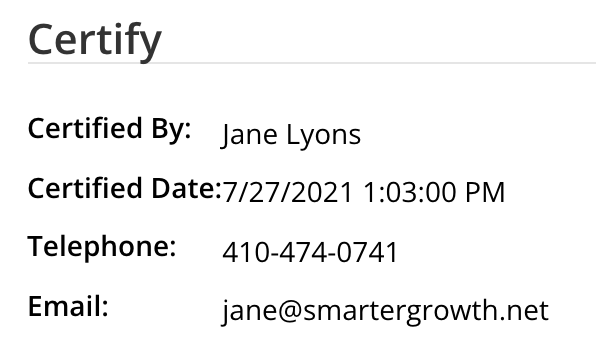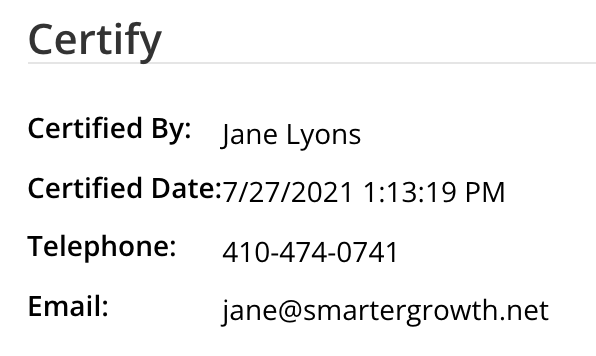Lobbying laws? What lobbying laws?
Jane Lyons, a lobbyist for the Coalition for Smarter Growth, failed to register as a lobbyist during 2020 despite conducting paid lobbying activities on behalf of the organization.
The evidence appears on the Montgomery County Ethics Commission website. Timestamps on the reports reveal that they were not submitted until the end of July 2021, well after the filing deadline.
But she need not worry. It turns out that Montgomery County’s lobbying laws have no teeth. According to Robert Cobb, Staff Director and Chief Counsel of the County Ethics Commission, there is no real penalty for failing to register or to report earnings:
Typically, we will have no idea if a registration is made late because we normally do not have insight as to when (or even if) the criteria for registration has been met. If someone registers for a prior year, that is likely to suggest non-compliance with the lobbying requirements. We have not sought to penalize entities when they subsequently register after having been notified by the Commission of registration requirements. We have emphasized obtaining compliance.
Cobb goes on to explain why they do not enforce penalties:
[A] program of aggressive seeking of penalties for non-compliance would affect the non-profit communities the most. Non-profit enterprises occasionally engage in lobbying activity and trip the registration requirements without registering. This may be a consequence of inadvertence or lack of sophistication in meeting regulatory requirements. Nonetheless, we have again focused on obtaining compliance rather than instituting punitive measures.
Except that Lyons cannot plead ignorance of the law because she had filed reports in 2019 when she had also acted as a paid lobbyist.
From the way Cobb tells it, lobbyists have little to fear:
In theory there could be a situation where an entity repeatedly fails to register and is intransigent towards efforts to obtain compliance that Commission staff or the Ethics Commission itself believes warrants further action including imposition of a penalty. This would require compelling evidence of noncompliance and persistent reluctance to register.
In other words, the Commission doesn’t even engage in public sanction for failure to comply, let alone impose a meaningful monetary penalty. If lobbyists like Lyons who clearly know better can avoid even the slightest sanction by filing whenever, it is hard to see how public interest in knowing who is being paid to lobby in a timely fashion is being served.
Ethics, schmethics.


